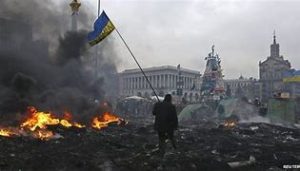
Staff Writer
From oil windfalls, to separatism, many have speculated around the impact on the Russia-Ukraine crisis on the African continent. This is especially as Russia has, in recent years, increased its influence on the continent, supporting coup leaders in Mali, Burkina Faso, and renegade, General Khalifa Haftar, in Libya. Moscow has even played an active part in the Central African Republic and Sudan, gaining much in relation to resources and mining contracts for its endeavours.
Speaking to Radio Islam International, political analyst, Damimola Olawuya, argued that this will have little impact on the continent’s many separatist movements, mainly since these movements have rarely had their struggles coincide with the interests of global powers. It is noteworthy that the continent’s borders have been relatively stable since independence, but that there is an average of 14 different separatist groups on the continent: “as long as [these group’s] intention is not aligned with the interest of the major powers of the world, they will continue to be left out in the code of global politics.”
Olawuyi was also critical of the continent’s response to African refugees, who face racism in escaping, and many of whom remain stranded in Ukraine. He argued that the crisis in Afghanistan in 2021 should have alerted African governments to formulate a plan, and reiterated that this remains a stain on African countries and their international embassies. He juxtaposed this with India, which has evacuated around 700 of its citizens thus far, but which continues to have to enhance these plans, since 13 000 Indians remain trapped in the country. Linked to this is the lack of logistical planning and training on the continent, which has hampered its response. He said, “Despite the sharp increase in spending that we’ve seen essentially all over the world, African countries still continue to struggle with such security crisis. Countries can continue to buy as much hardware they can buy, the latest equipment, and spend on the shiniest of hardware from around the world, but the soft skills, strategic intelligence, logistics planning, that’s mixed. Significantly, he argued that this relates to the population as a whole because one cannot expect “military to be more skilled than the population.”
Last, he argued that there would be a windfall, especially in countries such as Nigeria, which rely on oil exports for government revenue and investment. The 1991 Gulf War, for instance, saw Nigeria gain over $4 billion; however, as was the case at the time, much of this was laundered through corruption, and is of real concern.







0 Comments